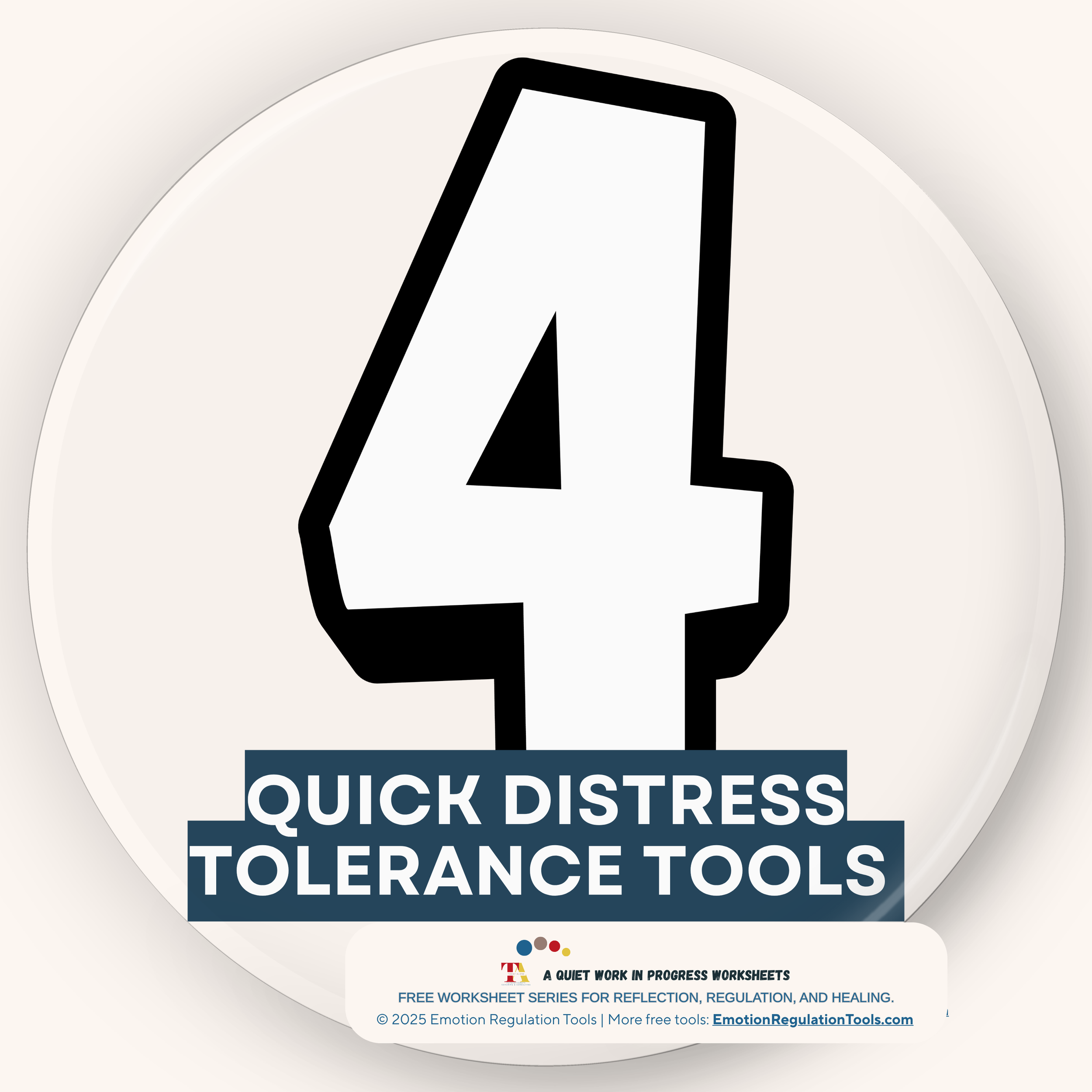Download Free Emotion Regulation Tools
Practical worksheets and guided practices to help steady emotions, strengthen awareness, and build self-regulation over time.
-

Three Essential Breathing Techniques
Explore three quick breathing methods to calm your body and steady your mind: the Physiological Sigh, Box Breathing, and 4-7-8 Breathing. Each one takes under a minute and can be practiced anywhere to reduce tension and restore balance.
-

TEA Triangle (CBT Reflection Tool)
Learn how your Thoughts, Emotions, and Actions influence one another. This CBT-based reflection tool helps you slow down, notice patterns, and choose more balanced responses when emotions run high.
-

Sensory Toolkit
Create a small collection of sensory items things to see, touch, smell, taste, or hear to help ground yourself when you feel anxious or disconnected. A portable way to return to the present through your senses.
-

FAST: Self-Respect Under Pressure
A quick DBT skill to help you stay calm, confident, and self-respecting in tough conversations. FAST reminds you to be Fair, Apologize less, Stick to your values, and be Truthful, even when emotions run high.
-

4 Quick Distress Tolerance Tools
A short guide to help you steady your mind and body when emotions feel overwhelming. Learn four simple practices, Pause and Ground, Shift the Body’s State, Soothe Through the Senses, and Healthy Distraction, to help you return to balance and clarity.
-

10 Essential Emotion Regulation Skills
A gentle overview of ten core skills that support emotional balance and nervous system regulation—from focused breathing and grounding to visualization and self-awareness. Each skill can be practiced at your own pace to build steadiness, clarity, and calm in daily life.
Practice Guidance:
Practical worksheets and guided practices to help steady emotions, strengthen awareness, and build self-regulation over time. These tools draw from CBT, DBT, and mindfulness principles to support reflection, calm, and clarity in everyday life.
Therapist or mental health professional guidance is highly recommended for deeper reflection.
Not a substitute for therapy or crisis care. If you are in crisis, call 988 or 911, or contact your therapist for support.

